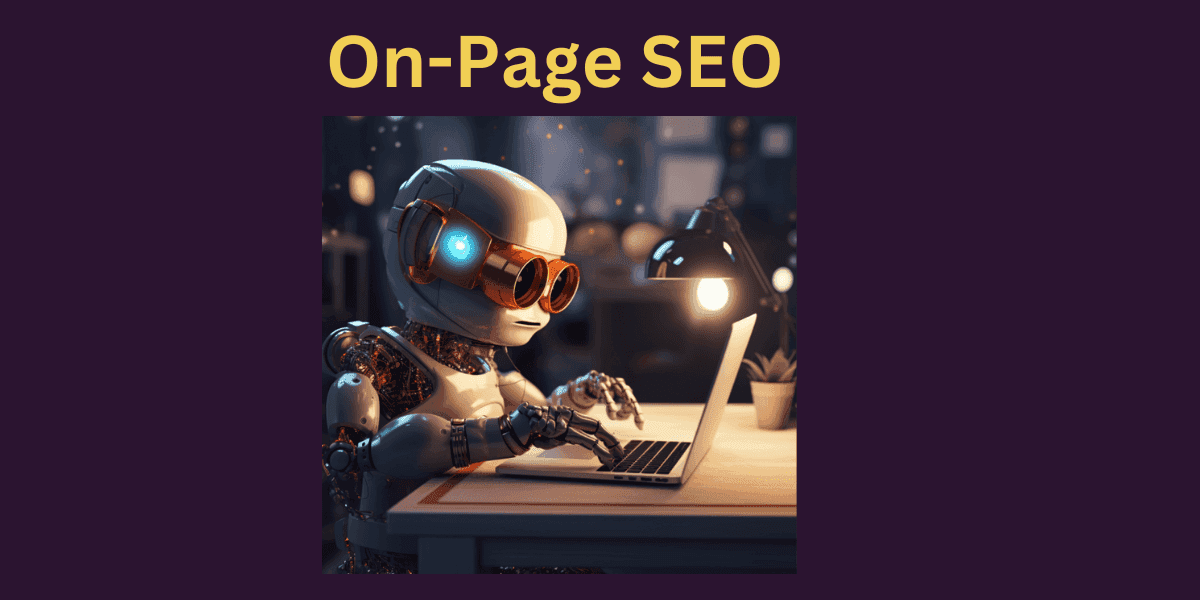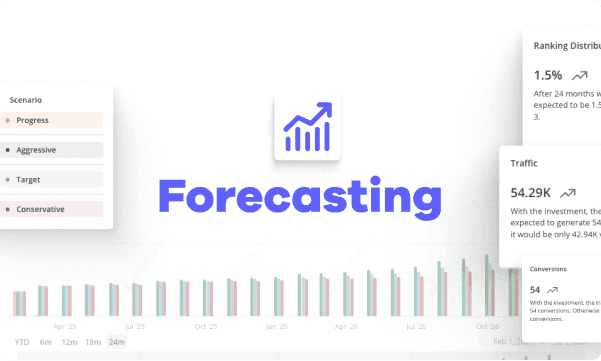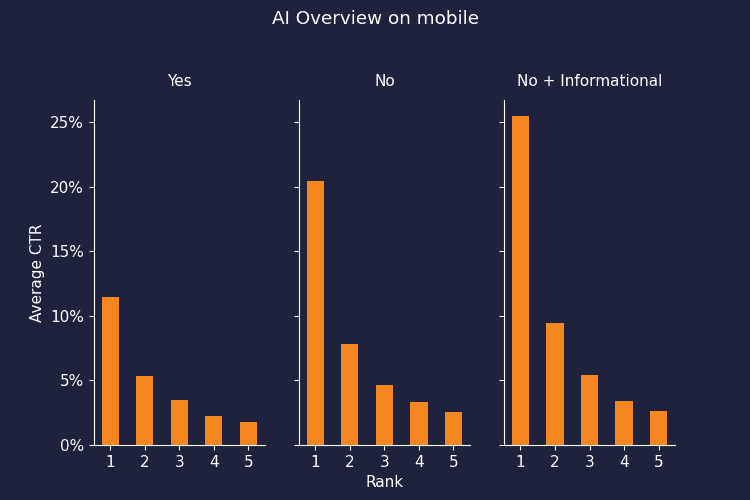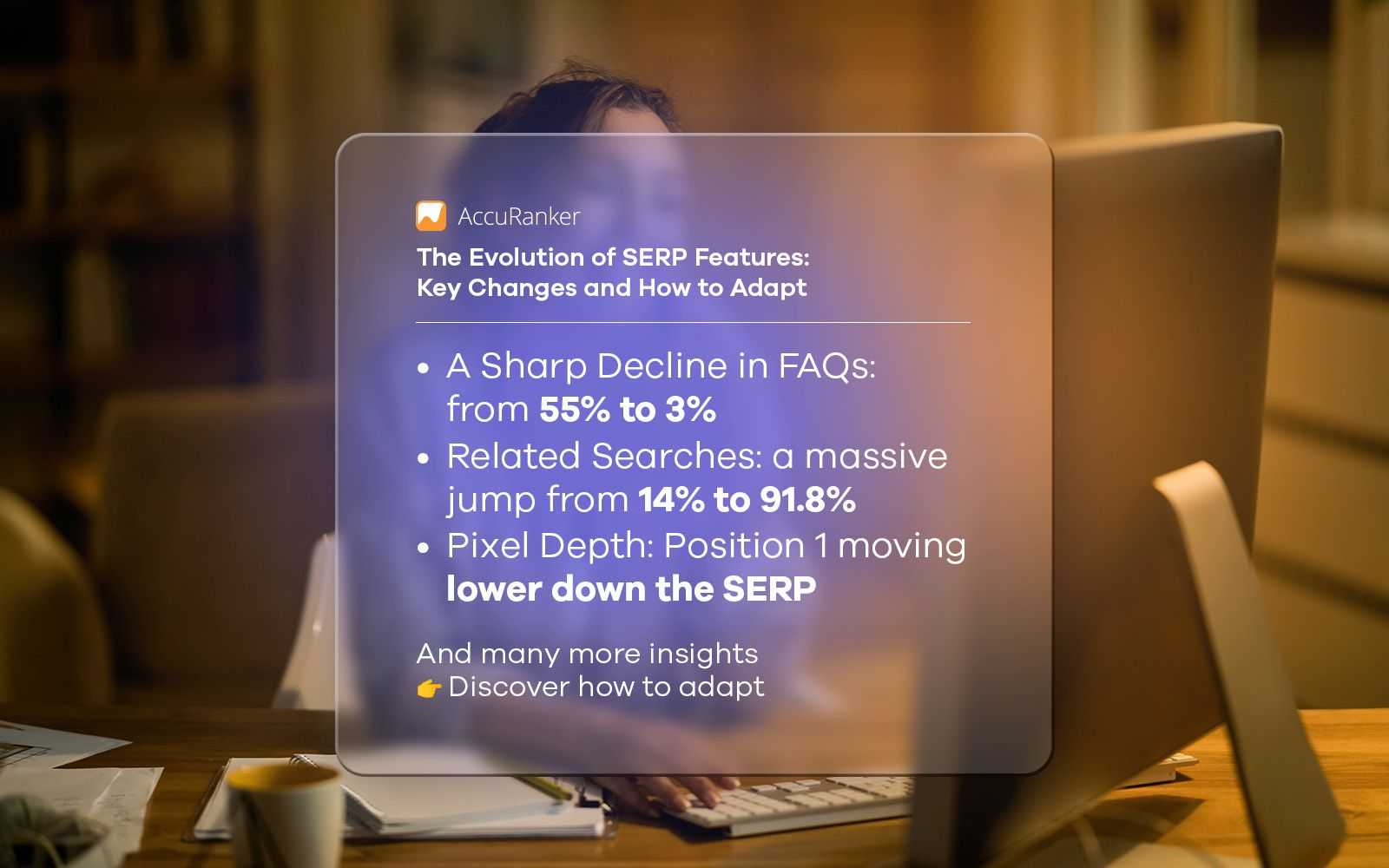5 ways AI can help small businesses with SEO
Last updated on Friday, October 20, 2023
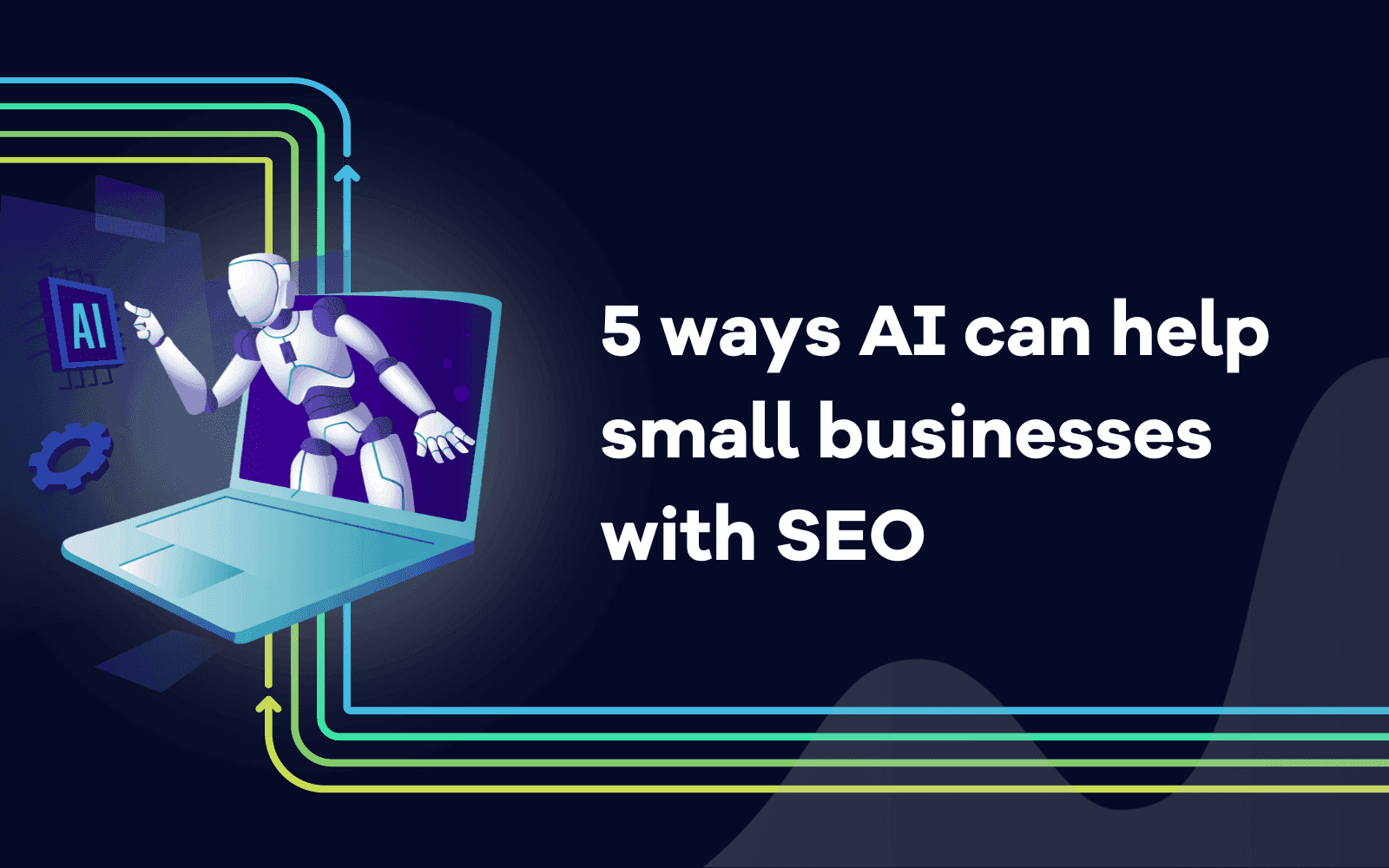
Tired of being outranked by big corporations in search results?
You're not alone.
SEO can feel like a complex maze for small businesses. But here's the game-changer: Artificial Intelligence (AI) can level the playing field.
In this article, we'll demystify SEO by exploring five ways AI can make it not just manageable but also profitable for small businesses like yours.
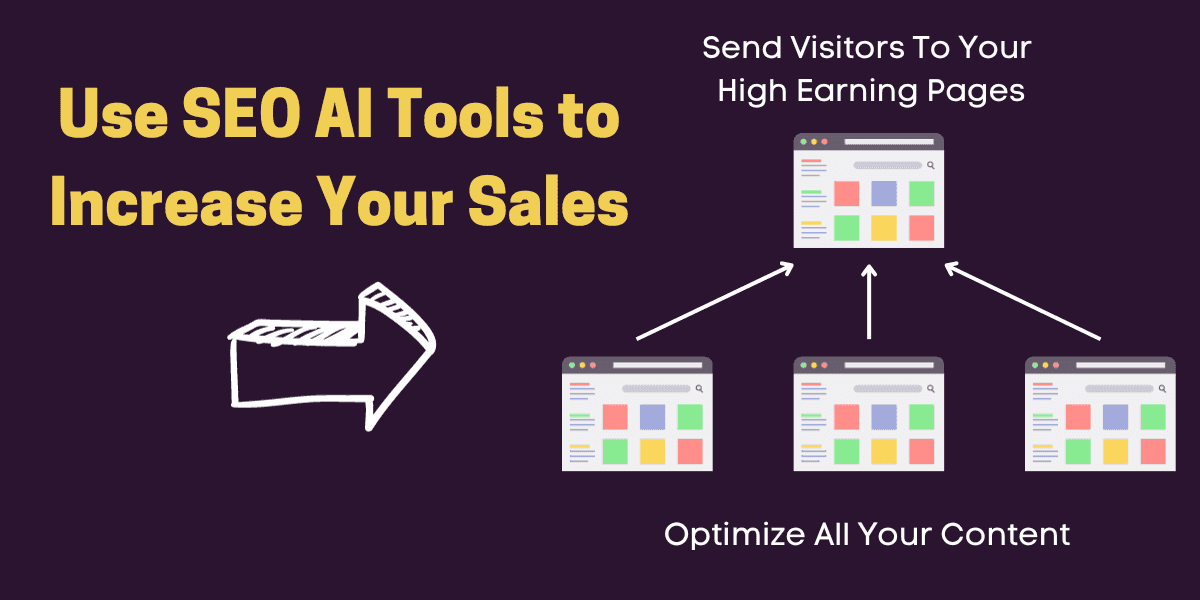
Changing your SEO game with AI: What small businesses can expect
By the end of this article, small business owners will view SEO not as a daunting challenge but as a growth opportunity. This article will show you how AI can simplify and supercharge your SEO, making it a powerful tool to help your small business.
The intimidation factor that often comes with SEO will be replaced by a newfound confidence, specifically tailored to the unique challenges and advantages of running a small business.
Equipped with actionable insights and practical steps, small business owners will be prepared to integrate AI tools into their SEO strategy immediately. Whether you're just starting out or looking to refine your existing SEO efforts, this article will offer valuable guidance for small businesses of all stages.
A sneak peek into AI's transformative role in small business SEO
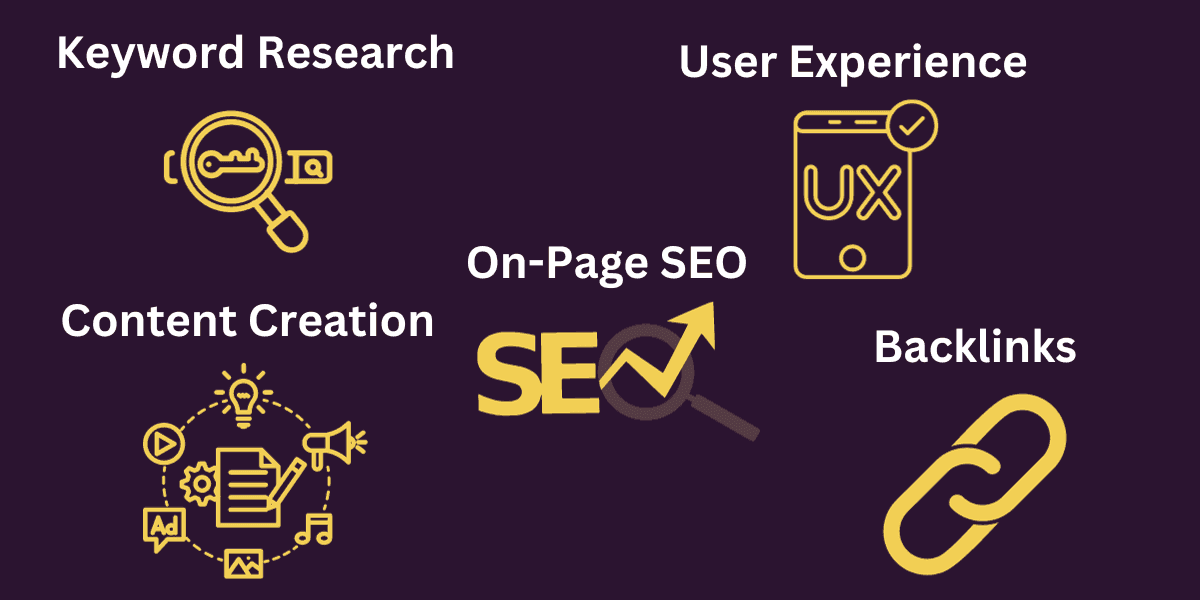
In today's digital landscape, small businesses often find themselves competing with larger corporations that have seemingly unlimited resources.
This article aims to level the playing field by focusing on how Artificial Intelligence (AI) is transforming the workplace and how small business SEO is done.
We'll delve into five key areas where AI can make a significant impact: keyword optimization, content creation, on-page SEO, backlink analysis, and user experience.
For each area, we'll provide real-life examples that demonstrate the power of AI in action, followed by actionable steps you can take to implement these strategies in your own business.
Whether you're a small business owner who is new to SEO or someone looking to refine your existing efforts, this article is your comprehensive guide to leveraging AI for SEO success.
Unlocking the power of AI in keyword research for small businesses
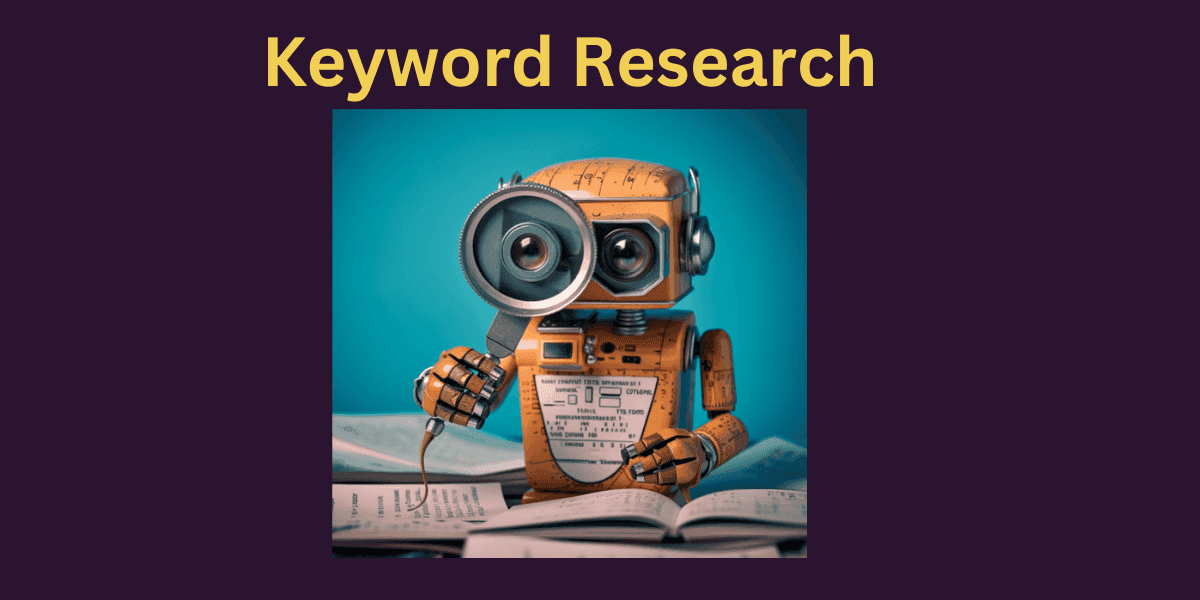
Keyword optimization is the backbone of any successful SEO strategy and can really help your business grow.
For small businesses, it's even more critical as you're often competing with larger players for the same search terms.
AI can automate this process, helping you find the right keywords that are not only relevant but also less competitive.
Small businesses are generally slower to implement but this looks to be changing. While larger organizations are twice as likely to harness AI, 41% of small businesses are devising AI strategies.
What does this mean? Well, if you don’t want to be left behind - now is the time to start thinking about your AI strategy.
Example: Neil’s Bakery
Take the fictitious, "Neil's Bakery," a small business that specializes in gluten-free products. They struggled to rank for broad terms like "bakery" or "gluten-free food."
By using AI-powered tools like AccuRanker, they were able to identify long-tail keywords that were less competitive but highly relevant, such as "gluten-free bakery in [Insert City Name]." Within a few months, their organic traffic increased.
Here's how you can do it too
Sign Up for AccuRanker: Create an account and set up your first project.
Input Your Niche or Industry: This helps AccuRanker understand what kind of keywords to look for.
Analyze the Suggestions: AccuRanker will provide a list of keyword suggestions along with important metrics like search volume and competition.
Select and Implement: Choose keywords that align with your business goals and incorporate them into your website's content, meta descriptions, and titles.
For more details on how you can implement Accuranker for your SEO and keyword research.
AI: Your new content creation assistant

Content is king, but creating high-quality, SEO-friendly content can be time-consuming, especially for small businesses with limited resources.
AI tools used for writing can assist in generating content that not only ranks well but also resonates with your audience. However, you need to make sure you are using AI writing tools the right way to make sure you won’t be penalized later on.
Example: Jane’s Boutique
Consider the fictitious "Jane's Boutique," a small fashion retailer.
They wanted to create a blog to drive more organic traffic but struggled with consistent content creation.
By using AI-powered content tools, they generated a blog post about "Sustainable Fashion Tips," which not only ranked on the first page for their targeted keywords but other websites found the article so helpful they linked to it, providing all-important backlinks to their site and further enhancing their websites ranking ability.
Here's how you can leverage AI for content creation
Choose an AI Content Tool: Platforms like ShortlyAI or Copy.ai offer AI-powered content generation.
Set Your Parameters: Input your chosen keywords, target audience, search intent and any other specific requirements.
Generate and Review: The AI tool will generate a draft. Review it to ensure it aligns with your brand voice and SEO goals.
Optimize and Publish: Make any necessary optimizations for SEO, such as including meta descriptions and headers, and then publish it on your blog or website.
Automate your on-page SEO
![Automate your on-page SEO]()
On-page SEO involves optimizing individual web pages to rank higher in search engines.
This includes meta descriptions, alt text, and more. For small businesses, this can be a tedious task. AI can automate these elements, making your website more search-engine friendly without the manual hassle.
Example: Tom’s Garage
Let's look at the fictitious "Tom's Garage," a small auto repair shop.
They had a website but didn't know how to optimize it for search engines.
By using AI tools that automatically generated meta descriptions and alt text based on the content, they saw a significant improvement in their local SEO rankings within weeks.
Here's your roadmap to AI-powered on-page SEO
Identify Areas for Improvement: Use tools like AccuRanker to perform an on-page SEO audit.
Automate Meta Descriptions and Alt Text: AI tools can generate these based on your content.
Optimize Headers and Content: Use AI to suggest improvements for your headers and the body of your content.
Review and Implement: Always review the suggestions and implement them as you see fit.
Backlink analysis: Smarter backlink strategies with AI
Backlinks, or in bound links from other websites, are a critical factor in how search engines rank your site.

For small businesses, building a strong backlink profile can be challenging. AI tools can help you identify potential backlink opportunities and assess the quality of these links.
Example: Emily’s Cafe
Take the fictitious "Emily's Café," a small local café that wanted to increase its online visibility.
They used AI-powered tools to identify blogs and local directories where they could get high-quality backlinks.
Within a few months, they saw a noticeable improvement in their search rankings and number of visitors that organically found their way to her site.
Here's how you can build a smarter backlink strategy with AI
Use AI Tools for Backlink Analysis: Platforms like AccuRanker can provide detailed insights into your current backlink profile.
Identify Opportunities: AI can help you find high-quality, relevant sites where you can aim to get backlinks.
Reach Out and Build Links: Use the insights to reach out to these sites for guest posts, collaborations, or other link-building strategies.
Harnessing user feedback to future-proof your small business SEO
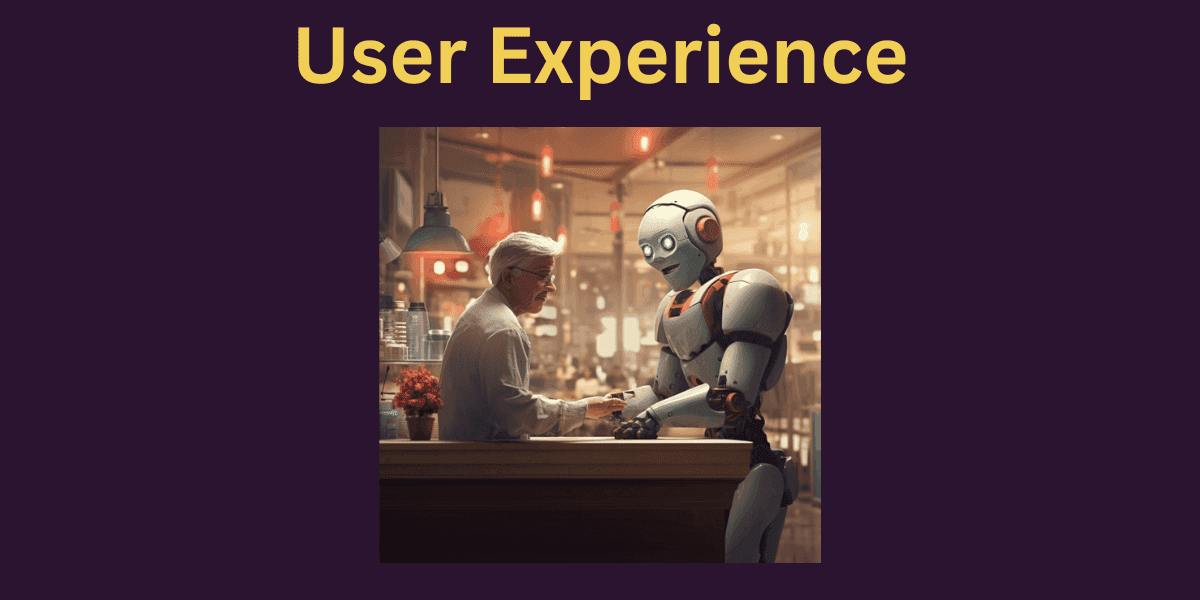
One of the most underutilized resources in SEO is user feedback. Knowing what your users think about your website can provide invaluable insights for future SEO strategies. AI can help you collect and analyze this feedback more efficiently.
Example: Sara's Craft Shop:
A small online store, used AI-powered surveys to collect feedback on user experience. They found that users wanted a more intuitive search function. After implementing this, their site's dwell time increased, positively impacting their SEO.
Here's how you can use AI to collect and utilize user feedback:
Implement AI-Powered Surveys: Use tools like Nicereply to create one-click feedback surveys.
Analyze the Data: AI can help you quickly sort through the feedback to identify areas for improvement by determining how hard is it to do business with you.
Make the Changes: Update your website based on the feedback and monitor how these changes affect your SEO.
The AI revolution in small business SEO: A recap and next steps
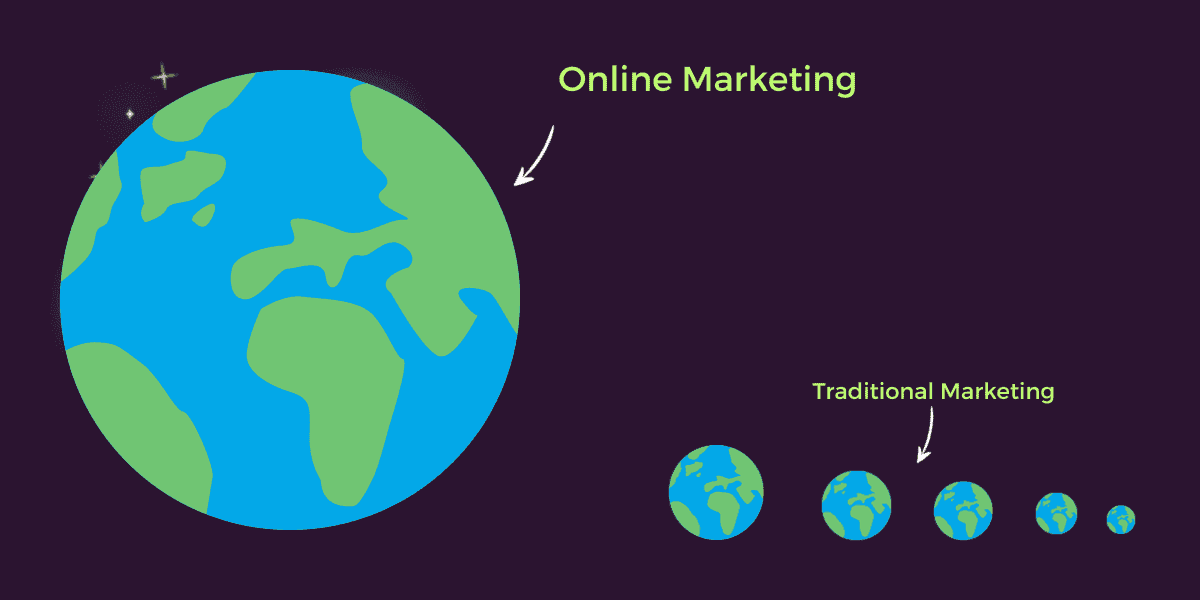
From keyword optimization to enhancing user experience, we've shown how AI can be a game-changing asset in your SEO toolkit, making you even more productive in promoting your brand and getting those all-important visitors to your site.
These aren't just theories; we've backed them up with real-life examples and actionable steps you can start implementing today.
What will you do next to help get more visitors to your website?
Don't let the complexities of SEO intimidate you any longer.
Embrace the power of AI to simplify and enhance your SEO strategy. The future of small business success is not just in hard work but in working smart.
Start leveraging AI tools today and watch your small business soar in search rankings and customer engagement.

Article by:
Adam
Blogger
Adam is the creator of his AI blog which specializes in leveraging AI and technology to drive business growth and digital marketing success. Drawing from his engineering background, he provides practical insights and tools to help businesses optimize their marketing strategies and achieve a competitive edge.
